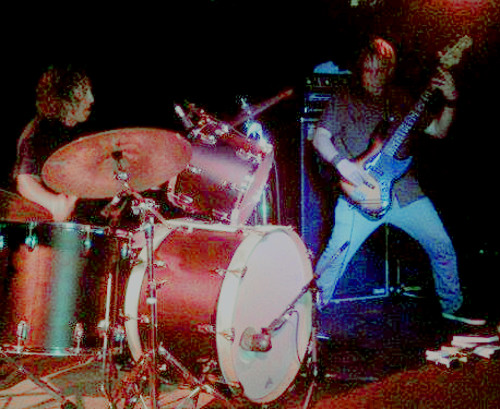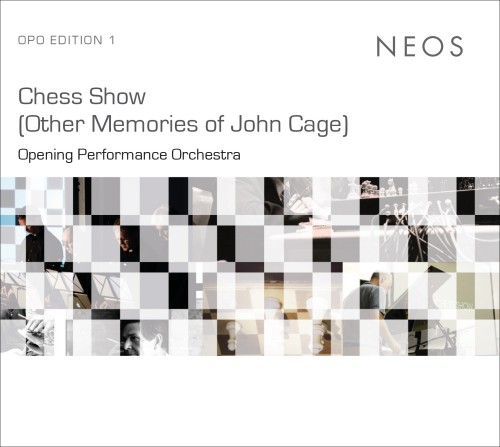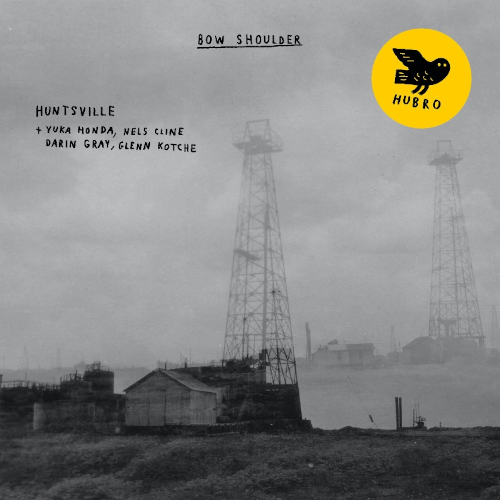Woman when I’ve raised hell, there won’t be a star left untouched in your sky
When my lighting crashes across that night
No shadows of doubt or of turnin’ in that questioning little mind
Just a burnin’ rekindled truth and one single agonizin’ blinding white light
It’s the kind of metaphor at which Pearson excels: sharper than any double-edged sword, it penetrates even to dividing soul and spirit, joints and marrow; it judges the thoughts and attitudes of the heart.
Lift to Experience were a band that had to happen sooner or later. In the mid 1990s the phenomena that swept out of the Toronto Airport Vineyard Church and the Brownsville Assembly of God church in Pensacola – shaking, inability to remain standing, uncontrollable laughter or crying, not to mention many stranger manifestations of religious ecstasy – reinvigorated the Charismatic Evangelical church. Suddenly everything felt real. Faith was rekindled and congregations entrenched further into a fundamentalist magical thinking that they believed was validated by what they were seeing in their churches. People flocked through the doors to see what was happening, to get involved, to feel touched by God, hear His voice and become part of something larger than themselves.That enormous intake of energy had to go somewhere. In order to fulfil the Great Commission’s calling to preach the Word of God to all nations the movement had to spill outside the walls of the church and be tested in the wider world. Larger churches attracted a disproportionate number of musicians due to the prospect of regular opportunities in congregational worship bands, so music seemed one logical avenue for spreading the gospel. In the USA, the Kevin Prosch-helmed Black Peppercorns seemed a feasible proposition, a vaguely alt-country band that fused rabble rousing choruses honed in arena-scale worship with a doubt-wracked psalmist’s introspection and Martin Neil’s incendiary polyrhythmic drumming. In England the preposterously named U2 copyists Deliriou5? tried to buy their way into the public eye with a PR campaign that involved co-opting the goodwill of their Christian fanbase into a coordinated purchase of their début single.
Yet the movement fizzled. Removed from an hospitable church environment the false-to-fact static logic often required to support assumptions of an interventionist God was challenged to its core. Moreover, the manifestations of religious ecstasy that were supposed to display the immanent power of God to the unconverted were dismissed as the lunatic behaviour of a fringe movement, even (especially) amongst other Christian denominations. That same energy that so urgently required expression was thwarted and turned back on itself. Christians were left stranded, run aground, their self-conceptions based on and shaped by a theological infrastructure that never came close to achieving the expected currency. Their faith became as much curse as blessing, dragging them to and fro with strange compulsions, restricting the kinds of thoughts and actions that were permissible, committing them to peer groups whose behaviour seemed at odds with reality, tying their thinking up in knots that were both theological and informed by the personal ministry they had received, and in many cases with parental issues projected outwards onto a cosmos that didn’t seem to care.
Go to any Charismatic church, spent time on the fringes, with those who duck out for a cigarette during the ministry, the ones who head straight to the pub after evening services. There are thousands of them worldwide. Deployed on a mission from God to save the world, they became the ones in need of saving from themselves.
Pearson’s history runs parallel. According to Stevie Chick’s classic feature for Loose Lips Sink Ships, “Josh T. Pearson played guitar, sang, wrote music, because it was only then that he felt the fire of God within him once again, the presence that shadowed him throughout his childhood, until his 19th birthday. The sensation of absolute belief that cradled his father, a lay preacher, so tightly he’d have his family starve, if only to prove his solemn belief that his God would ultimately provide.” Lift to Experience channeled that sense of Charismatic Christian divine immanence, of deeply personal theology intertwined with mythologised Americana, of the prophetic voice crying out in the Texas wilderness, of Job’s travail and doubt, and located the Judeo-Christian seam of redemption and transcendence that runs throughout rock’n’roll’s fragmented and idolatrous history. And in 2001 their double CD concept album The Texas-Jerusalem Crossroads cast Pearson as a prophet with father issues in a version of the End Times in which Texas is the new Jerusalem, foreshadowing the actions of a US President whose Christian faith, identification-stage Oedipus complex and financial interests in the oil fields of the Middle East were contributing factors in his intent to turn that dream into violent reality.As word of the album spread, its creator vanished. Stevie Chick’s above-linked article tells that story with an eloquence that’s not worth retreading in lesser text. It’s not this review’s place to speculate what happened to Pearson throughout that period, why he terminated Lift to Experience or why he chose to tentatively return to the public eye via years of solo concerts. It’s the purpose of this review to welcome him back and to thank him for a second masterpiece.
Last of the Country Gentlemen manages to remain sonically congruent with Lift to Experience despite its jettisoning of drums and bass guitar. It’s not just a matter of Pearson’s voice or guitar style, which remains recognisable despite this albums’ preference for acoustic over electric. It’s in the meandering structures that ebb, flow and repeat without consideration for conventional dynamics, instantly familiar to anyone who has more than a passing acquaintance with the manner in which church worship leaders collapse and extend song forms depending on the perceived demands of the moment, dwelling on certain phrases or trailing off at the end of verses or choruses, leaving the atmosphere hanging rather than stopping it dead. Songs repeatedly restate lyrical devices, words stretch out or tumble over themselves, akin to the manner in which a modern chorus might move into prayer or spoken or sung improvisation. The only adornment to Pearson’s voice and guitar are strings (supplied by Mike Siddell, Warren Ellis, Will Calderbank and the intriguingly-named Sixtoes) and the barest hint of piano on the closing track. At a casual glance, the album has markedly less of the grandiose conceptual framework than Pearson’s earlier work. Scratch the surface, however, and its overarching theme concerns the perceived inability of anyone to ever truly meet the needs of anyone else. “Thou Art Loosed!” contains the repeated refrain, “You’ll learn to live without me… I’ll learn to live without you”; on “Sweetheart I Ain’t Your Christ” (the midsection of which bears more than a passing resemblance to Matt Redman’s “Lord, Let Your Glory Fall”) he bluntly declaims, “You won’t be saved by saving me” and “I’m so tired of trying to make it right, for a girl who just won’t come to the light”; while after a song spent beating himself up for being in love with a woman who isn’t his wife (“Honeymoon’s Great! Wish You Were Her”), he wryly observes that the grass may always be greener with a self-deprecating, “If I was with her, would I start wishin’ she were you?” It’s hard not to contrast “Down With The Prophets”’ “We sing these songs because we have to, not because we want to” (from The Texas-Jerusalem Crossroads) with “Country Dumb”’s “We’re the kind still stuck in the past but who see well into the future / You see I miss you woman and baby you ain’t even yet gone.” There’s a sense of abdicated agency – of inevitability, or something predestined – that runs throughout Pearson’s work, and here he seems to be bleakly prophesying that misunderstanding, thwarted expectations, betrayal and abandonment are inescapable.The influence of Christianity is pervasive despite being relegated to the songs’ subtext, and with so much of Lift to Experience’ only album devoted to exploring Pearson’s singular relationship with God it’s tempting to read too much into all the artfully ambiguous pronouns being thrown around. Song of Solomon is a breathtakingly poetic precedent for the sexual relationship between men and women becoming a metaphor for the relationship between God and Man, a resource frequently drawn upon by Christian songwriters writing love songs that are open to being interpreted as devotional music. It’s to Pearson’s credit that he turns this on its head, turning out an album of failed love songs, wracked with remorse and loss, splicing Song of Solomon with Lamentations.
Last of the Country Gentleman could be read either way; as a continuation of one man’s wrestling match with God, or as a clearing house in which he apologises for any disappointment before broadening his thematic range. Whatever the answer, it’s heartening to hear such continuity from this most singular of voices. Before release, the questions foremost in my mind were whether John T. Pearson was any happier these days, and where he stood when it came to his relationship with God. The former can rarely be answered by a lyric sheet, but given the album’s overwhelming subtext about the impossibility of people saving each other, a lyric like “We’re the kind who will always need a saviour” seems to at least offer some kind of answer to the latter.But who knows? There’s no lower case on the lyric sheet, no way of knowing whether it’s ‘saviour’ with a capital ‘S.’
-Seth Cooke-




